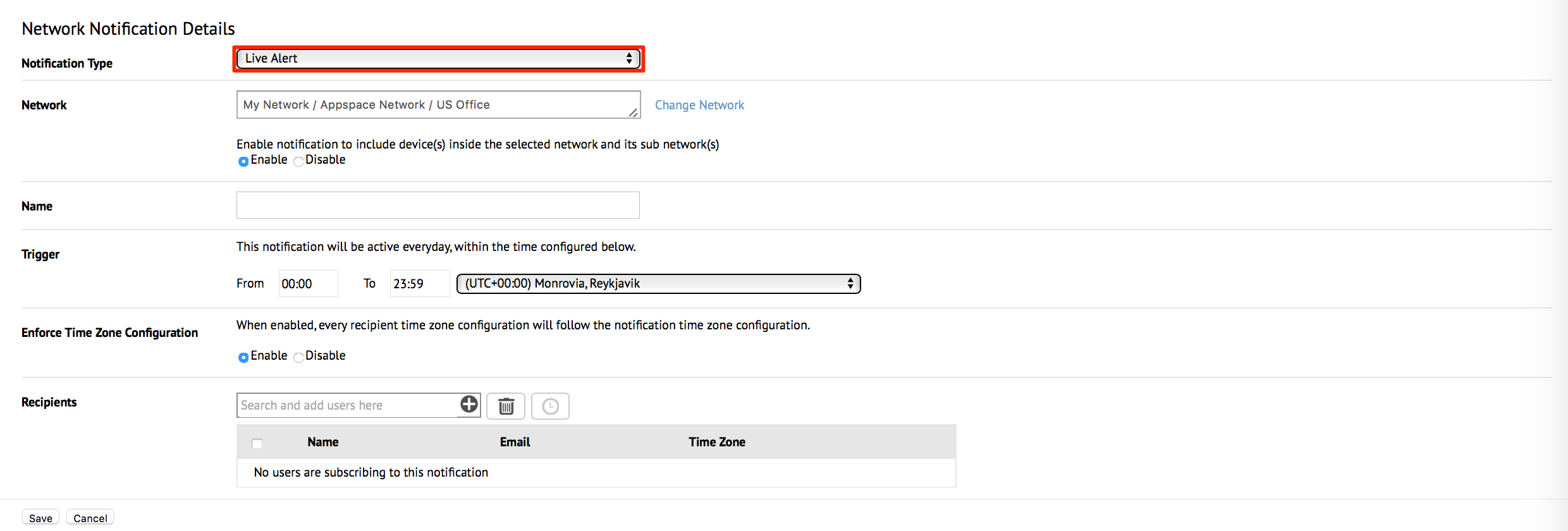Managing notifications
Appspace will send email alerts to selected users in the event of player failures, communication loss, or errors during content download or syncing.
When a failure is detected and no response is made within 15 minutes, a failure alert email will be sent to the user list. The system will continue to monitor the player and if the failure persists, email alerts will be sent at 15-minute, 45-minute, 1-hour, 3-hour, 6-hour, and 24-hour intervals.
There are two types of player failures:
Communication Lost – This indicates that the player has lost its network connection with the server. The player will still be playing the application but any updates made will not be received.
Failed – This status requires urgent attention as it may be critical failures such as power or hardware failure, and can result in the app not being displayed on screen.
This article provides the instructions to add, edit, and manage network notifications.
Prerequisites
One of the following user roles:
- Portal Administrator
- Account Administrator
- Account Owner
- Network Administrator
Player Alerts must be enabled on the player.
Creating a Network Notification
Click the Appspace menu, and select Admin > Networks.
Click the Networks tab, and click the Notifications sub-tab.
Select the network the player is registered on, and click the Create a new notification button.

In the Network Notifications Details window, select the Notification Type.
Live Alert - Live Alert notifications trigger immediately after an event happens (e.g. player loses communication or fails).
Summary - Summary notifications provides timely reports on your network status.

The Network lists the network the players to be monitored on by default. To change networks, click the Change Networks link, and select the network the players to monitor are in from the network tree.
Optionally, you can enable the notifications to include devices inside the selected network, and it’s sub-networks by selecting the “Enable” radio button.
Enter in a Name for this notification.

Configure the Trigger for the notification, depending on the Notification Type selected earlier.
Live Alert notifications only allow you to configure the trigger window and timezone.

Summary notifications allow you to configure the report recurrence.

The Enforce Time Zone Configuration is enabled by default, which forces notifications to be pushed to recipients based on the trigger time zone.
The Recipients section lists down users subscribed to the notification.
To add a user, search for the user’s name, and click the Add recipient button.

To remove a user, select the users, and click Delete recipient(s) button.
Note
The Set time zone button is only enabled when the Enforce Time Zone Configuration is disabled.
Click Save once done.
To delete a network notification, select the desired network notification, and click the Delete network notification button.


